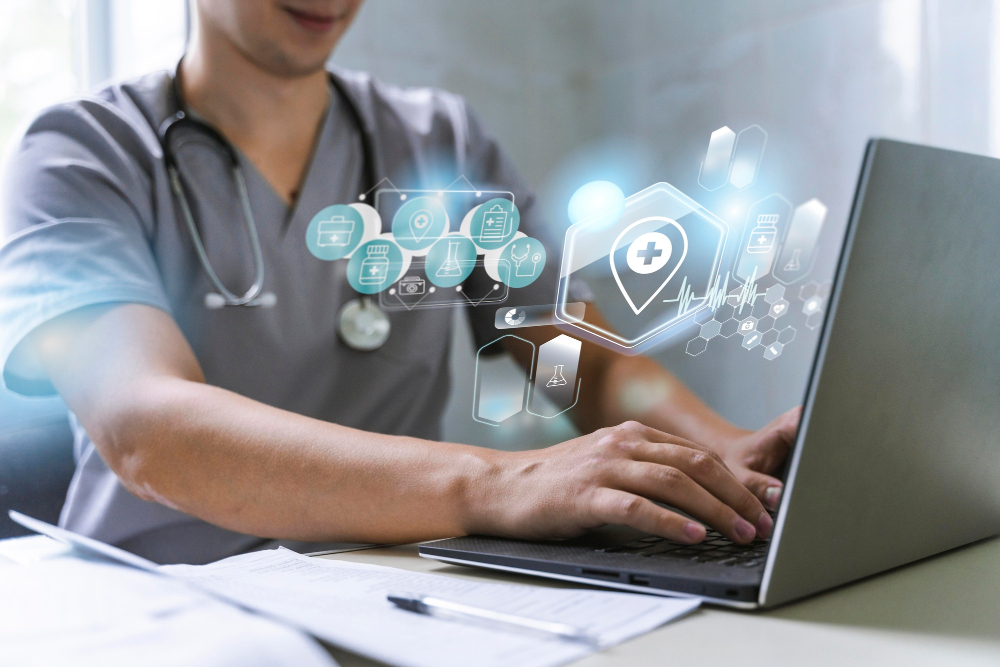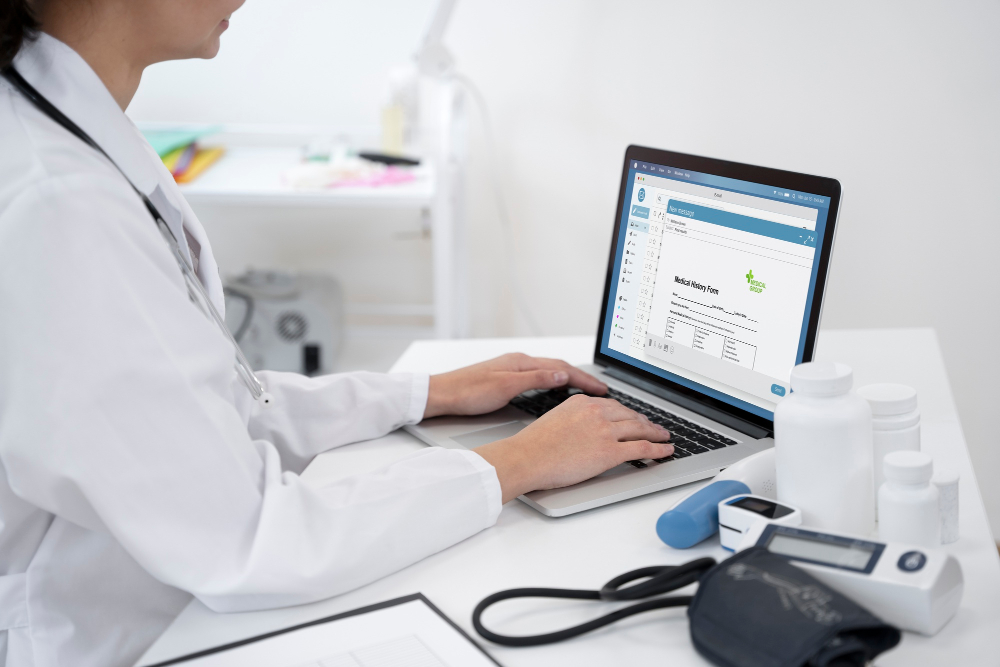The Future of Patient Engagement: How Healthcare CRM Software is Transforming the Industry

Introduction to Healthcare CRM Software
Picture this: a hospital where patient information is not only stored efficiently but is used to improve the overall experience for both patients and healthcare professionals. That’s where healthcare CRM software steps in, acting as a dynamic tool that transforms routine medical interactions into exceptional patient journeys. These platforms are designed specifically for the healthcare industry, promising enhancements in patient engagement and streamlined operations. By leveraging advanced medical technology, CRM systems like Salesforce, Pipedrive, Zendesk, Creatio, Zoho, and Capsule help healthcare providers focus on what truly matters – quality care and patient satisfaction.
Healthcare CRM software doesn’t just store data; it actively engages with it. Imagine automated appointment reminders, personalized communication, and seamless follow-up care. These features not only enhance the patient experience. As a result it also empower healthcare providers to maintain stronger relationships with those they serve.
The Role of Healthcare CRM in Patient Engagement

Healthcare CRM software is changing the way healthcare providers connect and communicate with patients. It’s not just about storing patient information anymore. At first, it’s about fostering a deeper, more meaningful relationship between healthcare providers and their patients. Let’s break down how these systems enhance patient engagement through improved communication and personalized care.
Enhancing Communication between Patients and Providers
Effective communication between patients and healthcare providers is crucial for successful medical outcomes. One of the standout benefits of healthcare CRM software is the way it bridges any gaps in communication. These systems allow providers to:
– Send Automated Reminders: Regular appointments, follow-up visits, medication schedules—these systems can shoot out reminders like clockwork, cutting down on missed appointments.
– Facilitate Direct Communication: Patients can easily reach out to their healthcare providers directly through messaging features, whether it’s for a quick question or a serious concern.
– Offer Access to Online Portals: These portals can host a treasure trove of personalized information and resources, from test results to health education materials, available to patients anytime, anywhere.
By opening these lines of communication, healthcare CRMs ensure that patients are never left wondering about their health status or what steps they need to take next.
Personalizing Patient Care through Data Analytics
Gone are the days of generic healthcare solutions. With CRM systems, providers can harness powerful data analytics to deliver personalized care to each patient. These tools collect data from numerous sources, including electronic health records, previous interactions, and even feedback surveys. Here’s how analytics come into play:
– Tailored Treatment Plans: By analyzing a patient’s history, health data, and preferences, providers can craft treatment plans that are truly personalized.
– Predictive Analysis for Better Outcomes: CRM systems analyze patterns in data to predict potential health risks and recommend preventive measures.
– Segmented Communication Efforts: Understanding the demographics and preferences of different patient groups allows for targeted communication campaigns that resonate more effectively.
Ultimately, data-driven insights empower healthcare providers to offer care that’s not just reactive but proactive, improving overall patient satisfaction and outcomes.
Key Benefits of Healthcare CRM Software
The integration of CRM software in the healthcare industry doesn’t just stop at patient engagement. The benefits extend far and wide, touching every aspect of healthcare delivery. From enhancing patient experiences to streamlining administrative tasks, let’s dive into the key benefits that healthcare CRM software has to offer.
Improved Patient Experiences
At the heart of every healthcare practice is the desire to provide the best possible experience for patients. Here’s how CRM software makes this happen:
– Personalized Interactions: By maintaining a comprehensive record of each patient, including past interactions, preferences, and health history, providers can ensure every interaction is tailored to the individual.
– 24/7 Access to Information: Patients can access their medical records, upcoming appointment details, and educational resources anytime they need, providing a sense of empowerment over their health journey.
– Feedback Loops for Continuous Improvement: CRMs often incorporate feedback tools that allow patients to easily share their experiences, which providers can then use to make enhancements in service and care delivery.
When patients feel seen, heard, and valued, their overall experience improves, leading to higher loyalty and better health outcomes.
Streamlined Administrative Processes

Anyone who’s ever taken a trip to a healthcare facility knows there’s a mountain of paperwork involved. Streamlining these processes is where CRM software truly shines:
– Automated Scheduling and Billing: Automation cuts down on the time spent setting appointments or processing payments, reducing errors and freeing up staff to focus on more critical tasks.
– Centralized Patient Information: All patient data is stored in a single dashboard, making it easy for providers to access necessary information without sifting through heaps of paperwork.
– Simplified Coordination Across Departments: With all departments accessing the same data, the coordination of care is smoother, reducing inefficiencies and miscommunications.
These improved administrative processes result in a more seamless experience not just for the staff, but for the patients as well.
Increased Operational Efficiency
Beyond the perks of a well-organized administrative setup, healthcare CRM software boosts operational efficiency on a broader scale:
– Resource Management: By tracking patient flow and demands, facilities can better allocate resources, ensuring that each department is optimally staffed and stocked.
– Informed Decision Making: Real-time data analytics provide managers and administrators with insights needed to make strategic decisions that benefit both patients and organization operations.
– Scalability and Adaptability: As healthcare demands grow or change, CRMs provide the scalability needed to expand operations without a hitch, making it easier to adapt to the changing landscape of healthcare.
When operations run efficiently and resources are used wisely, it benefits everyone involved—providers, staff, and most importantly, the patients.
Harnessing the full potential of healthcare CRM software ultimately leads to a more responsive, personalized, and efficient healthcare system. By transforming how information is managed, communication is facilitated, and care is delivered, CRMs ensure that the healthcare industry evolves in step with technological advancements, bringing about a better experience for all.
Leading Healthcare CRM Solutions
So, you’re interested in healthcare CRM solutions. Well, you’ve come to the right place because today, we’re diving deep into the crème de la crème of CRM software that’s been shaking up the healthcare industry and transforming the patient experience. Whether you’re a tech enthusiast or a healthcare professional, there’s something magical about seeing medical technology work seamlessly to enhance patient engagement, wouldn’t you agree?
Salesforce for Healthcare
Let’s kick off with the juggernaut of CRM platforms—Salesforce. Salesforce’s healthcare CRM is like having a personal assistant who never sleeps, ensuring that patient engagement is on point 24/7. What’s the secret sauce? It’s all about personalized care plans. With Salesforce, healthcare providers can create tailored care regimens. That feel less like a one-size-fits-all and more like a bespoke healthcare journey.
The power of real-time data sharing and advanced analytics helps practitioners keep a pulse on patient needs, from appointment reminders to follow-up care instructions. Not only does this make patients feel valued, but it also boosts their overall experience within the healthcare system.
And let’s not forget about interoperability. Salesforce is built to smoothly integrate with other systems like electronic health records (EHR), ensuring that all patient information is streamlined and up-to-date. No more chasing paperwork or piecing together fragmented data; it’s all about efficiency and precision.
Pipedrive and its Applications
Pipedrive might not be the first name you think of when talking about healthcare CRM, but this dark horse is worth a mention. Known for its robust sales and pipeline management capabilities, Pipedrive is making a name for itself in healthcare too. Imagine a system that helps you track patient inquiries like hot leads—never losing touch with their needs.
Its visual interface is straightforward, making it easier for healthcare teams to manage communications and patient follow-ups without feeling overwhelmed. The platform’s customization features are handy, allowing medical providers to tailor the CRM to fit specific departmental needs.
And there’s more to love! Automation features within Pipedrive save time and minimize human error, ensuring that every patient receives the attention they deserve without dropping the ball. This ultimately enhances the patient experience, turning occasional visitors into loyal patients.
Features of Zendesk in Healthcare
Zendesk – a name synonymous with customer service excellence. But did you know its features translate exceptionally well to the healthcare industry? The platform’s robust ticketing system is ideal for managing patient queries. With Zendesk, the patient journey becomes smoother, as healthcare providers can efficiently address concerns and questions in a timely manner.
Support is not just reactive; we’re talking proactive engagements that anticipate needs before they become issues. Zendesk’s help desk software brings together communication tools that allow seamless interaction with patients, ensuring that any bumps on the road are swiftly navigated.
Moreover, Zendesk’s analytics capabilities provide insights to continually improve patient interactions. By understanding communication patterns and patient satisfaction rates, healthcare providers can adjust strategies to optimize the overall patient experience.
Integrating Healthcare CRM with Existing Systems

Now, touching a raw nerve here—integrating healthcare CRM with existing systems is no walk in the park. Especially when you are striving for a frictionless, smooth-running operation. But hey, nobody ever said blending top-notch technology with existing procedures would be easy! Let’s break down how to navigate this jungle.
Challenges and Solutions for Integration
So here’s the deal: integration sounds impressive, but it’s often accompanied by roadblocks like system incompatibilities and data migration headaches, giving IT teams nightmares. You could find yourself asking, “Can my existing EHR system really dance with the new CRM?”
To tackle these challenges, it’s crucial to start with a clear integration strategy. This means assessing existing systems, understanding the scope, and planning out a step-by-step process for how the integration will unfold. Consider leveraging middleware tools that act as bridges, enabling different software platforms to exchange data seamlessly.
Also, let’s talk about APIs, the unsung heroes in tech. They can be custom-built or pre-existing, helping disparate systems communicate effectively. The ultimate aim is to create a comprehensive data ecosystem that supports rather than hinders workflow.
Ensuring Data Security and Compliance
In the world of healthcare, nothing screams importance like data security and compliance. While integrating systems may sound thrilling, ensuring that patient information remains protected is a legal and ethical priority. With laws like HIPAA in the US, safeguarding data can’t just be an afterthought.
Encryption and access controls are the go-to methods for fortifying data protection. It’s vital to implement stringent security protocols that prevent unauthorized access and ensure that data is only shared on a need-to-know basis.
Plus, regular audits and assessments can’t be overlooked. These ensure your systems consistently remain compliant with industry standards. Choose CRM solutions that adhere to global data protection standards to shield your healthcare facility from risks and liabilities.
Training Healthcare Professionals for Effective Use
Even the most robust CRM system can fall flat if users lack the know-how to harness its full potential. Therefore, training healthcare professionals to effectively use CRM software is just as crucial as choosing the right system.
Start by providing comprehensive onboarding sessions where staff members learn every nook and cranny of the new system. These should cover not just operational aspects but also emphasize the “why” – why the CRM’s features are necessary. And how they positively impact patient engagement and the overall healthcare experience.
Ongoing training opportunities are also pivotal. As the system evolves, ensure the team is always updated with the latest features and functionalities. Creating a culture of continuous learning within your facility not only empowers staff. As a result, that ultimately enhances the patient experience by ensuring seamless service delivery.
In conclusion, healthcare CRM software is indeed at the heart of modernizing the healthcare industry. By pursuing the right CRM solution that meets specific needs, addressing integration challenges thoughtfully, safeguarding data, and empowering healthcare professionals with knowledge, healthcare institutions can master the fine art of patient engagement. Better interactions, improved experiences, and healthier relationships are just a few clicks away!
Conclusion: Transforming the Healthcare Industry with CRM Tools
Incorporating healthcare CRM software is proving to be a game-changer for the industry. These tools are paving the way for:
– Improved patient engagement, leading to better health outcomes.
– Streamlined communication, reducing administrative burden on staff.
– Personalized care, enhancing the overall patient experience.
By adopting CRM solutions like Salesforce, Pipedrive, and others, healthcare providers are not just keeping up with modern trends—they’re setting new standards in patient care. The shift is not only about technology but also about fostering stronger relationships with patients. It’s making the healthcare journey as effective and seamless as possible.



